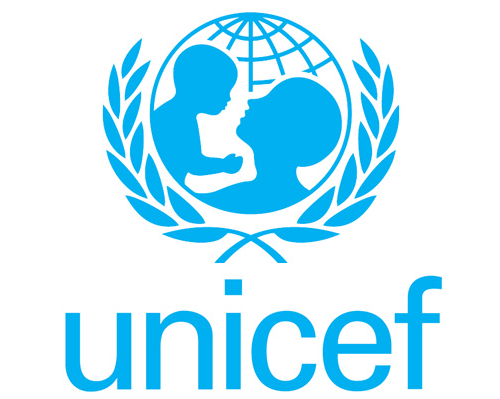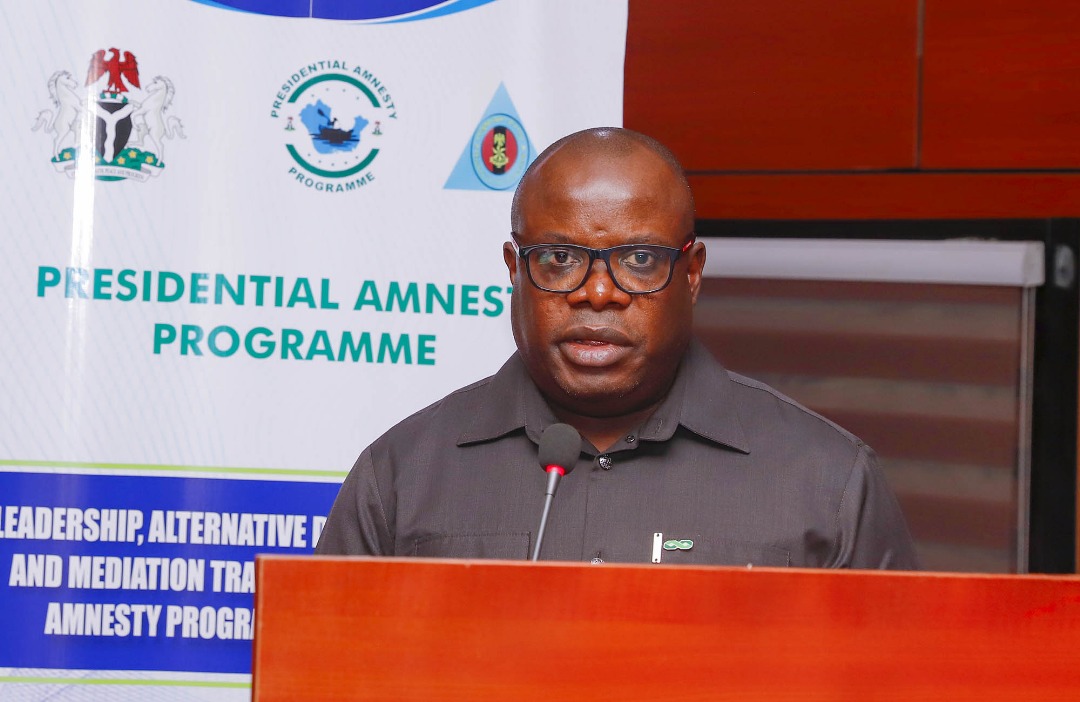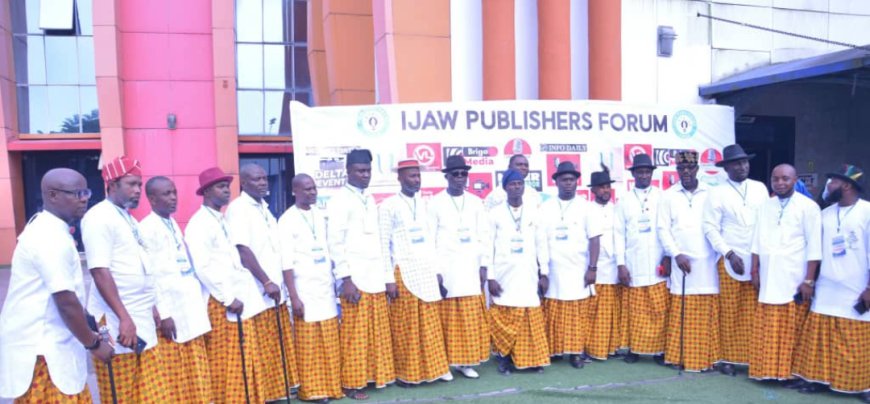News
UNICEF Urges women To Shun Home Child Delivery

The United Nations Children’s Fund (UNICEF) has urged women to shun giving birth to children at home so as to enhance their chances of survival during and after delivery.
Mr Oluseyi Olosunde, UNICEF’s Health Officer, Bauchi Field Office, made the call on Wednesday in Gombe state while presenting a paper titled the Optics of Maternal Newborn and Child Health (MNCH) in a media dialogue to commemorate the 2024 International Women’s Day (IWD).
According to him, it was high time women were empowered to improve maternal, child health and reduce maternal and child mortality rate.
READ ALSO: UNICEF Urges Bauchi Govt To Initiate Policy For effective Faecal Sludge Management
Olosunde explained that in some Northern states, six out of 10 delivery takes place at home while in others 8 out of 10 delivery takes place at home, exposing such children to risks of child mortality with absence of qualified health practitioners and facilities.
“The more we empower women, the better results we’ll get in health as it would reduce both maternal and child mortality and other health issues.
“Child delivery at home poses serious danger to the mother and the baby in case of any breach during labour as the home lacks the necessary equipment to detect the problem with a view to tackling it,” he said.
READ ALSO: Climate Change: Over 110 Million Nigerian Children At Risk – UNICEF Raises Alarm
He also advocated for proper education of women by stakeholders on health related matters right from conception till the point of delivery, most especially in the rural areas where there were more child mortality rates.
The UNICEF Health Officer added that when a woman is educated, the chance that her child would survive is higher than the one who is not
He called on all health stakeholders including journalists to help build women’s capacity every now and then by telling them about dangers in pregnancy, how to manage their breast while breastfeeding, among others.
The Media Dialogue drew media practitioners from the Bauchi UNICEF Field Office Comprising of Bauchi, Taraba, Adamawa, Gombe and Plateau states.
News
Otuaro Tasks Media On Objective Reportage

The Administrator, Presidential Amnesty Programme (PAP) Dr. Dennis Otuaro has charged media practitioners particularly members of the Ijaw Publishers’ Forum to promote ethical journalism through their reportage.
He gave the charge in Warri on Wednesday during the 2nd Annual Ijaw Media Conference organised by the Ijaw Publishers’ Forum (IPF).
Represented by Princewill Binebai, spokesman, Ijaw Youth Council (IYC) Worldwide, Otuaro while stating that the Niger Delta stories have been told in such a way that is quite different from what is obtainable in the real sense, said this, IPF must do everything possible to correct.
The administrator added: “I am happy that Ijaw journalists have boldly come out together to champion the Ijaw struggle in a very dynamic perspective”.
READ ALSO:IPF Hosts Media Conference, Seeks Protection For N’Delta Environment
“The Ijaw story was misrepresented over the years, but IPF’s emergence had corrected this error and the story is gradually changing for better.”
Otuaro, however, challenged Ijaw media practitioners to be objective, truthful, accurate and fearless in their reportage to correct many years anomalies of the Ijaw struggle.
He admonished members of IPF to see themselves as brothers and love one another in the discharge of their activities to achieve a common goal.
News
Police Confirm Edo Tanker Explosion, say No Casualty

The Edo State Police Command has confirmed tanker explosions that rocked Auchi, the administrative headquarters of Etsako West Local Government Area of the state.
The Command’s Police Publice Relations Officer, Eno Ikoedem, who confirmed the incident via the phone, said the explosion occurred at about 6:30 p.m. following the fall of a fuel tanker along the road.
Ikoedem said the incident occurred on Wednesday evening at about 6:30 p.m. following the fall of a fuel tanker along the road.
READ ALSO:Edo SSG Calls On Media To Support Govt Policies, Assures Better Welfare
She explained that spilled fuel seeped into underground tunnels, which later ignited and caused three explosions in different parts of the Auchi community.
According to her, officers from the Auchi Divisional Police Headquarters and the Area Command were mobilised to the affected areas and successfully cordoned them off to prevent loss of lives.
She added: “No casualty was recorded. Our men on ground were able to cordoned the affected areas.”
READ ALSO:Edo Assembly Declares Okpebholo’s Projects Unprecedented
It was gathered that three separate explosions rocked the town simultaneously in different parts, which led to properties worth millions of naira destroyed.
A resident who does not want his name in print said via the telephone that the blasts occurred along Igbei Road, Igbo Shade, and along the Auchi–Okene Road, close to Winners Junction.
The resident, who alleged the explosions appeared to have been coordinated, called for a thorough investigation into the incident to prevent future occurrences.
Calls put across to Mr. Monday Edogiawere, Chairman, Red Cross, Edo State, were not picked.
News
IPF Hosts Media Conference, Seeks Protection For N’Delta Environment

The Ijaw Publishers’ Forum (IPF) on Wednesday , December 17, 2025 held its annual media conference in Warri, Delta State, where the media practitioners sought protection of the Niger Delta’s natural resources and environment for future generations.
In his welcome address at the conference themed: ‘Safeguarding the Niger Delta Natural Resources for Future Generations,’ IPF President, Comrade Austin Ozobo, while emphasising the importance of protecting the Niger Delta’ environment and resources, highlighted the devastating impact of oil theft, environmental pollution, exploitation by oil companies, federal government and deforestation on the region.
He called on oil exploration companies to prioritize the well-being of the people and the environment.
Comrade Austin also provided a brief history of the IPF, which was formed in October 2023 to promote the Ijaw struggle and its identity.
READ ALSO:Otuaro: IPF Urges Reps To Take Caution Over Arrest Threat
He noted that the IPF has made significant strides in telling the Ijaw story and advocating for the rights of the Ijaw nation.
Ozobo, who noted that the conference was aimed at addressing the challenges facing the Niger Delta region and find solutions to safeguard its natural resources for future generations, said: “We must stop oil theft, environmental pollution which has destroyed fishing and farming activities or occupation in our region. We must equally stop deforestation and waste of other forest and aquatic resources. Our resources are our future. Our environment is our wealth. Pollution does not just affect our environment but it shortens our life span. Stealing our crude or sabotaging it, is as well as stealing our common wealth, invariably creating poverty, unemployment and lack of opportunities in our region. This message largely affects our oil exploration companies. The IOC and indigenous oil companies management should stop exploitation and deliberate environmental pollution if our well-being should be prioritized”.
“We have proactively told the Ijaw story in all dimensions, we have propagated and seamlessly advocated for the struggle of the Ijaw nation. We have actively defended the Ijaw nation from willful blackmails, people who are hellbent to hand twist, incite government, its military against Ijaw nation to jeopardise Ijaw identity. This is not to entertain you but well-meaning leaders, stakeholders and youths could attest to it”.
READ ALSO:IPF Holds Annual Ijaw Media Conference December
“There is no gainsaying that IPF has balanced the equilibrium, the Ijaw nation is now more significant in the media industry than ever, there is now a checks and balances between those who bastardise our collective image or identity in the name of telling our story. We have corrected many such narratives and we will continue to put a stop to it. I can assure you that the rate at which the foreign papers battered our identity have reduced to the barest minimum since we took charge and made Ijaw significant in the media industry”
“The Yoruba has their media houses, Hausa has its own, Igbo has, Itsekiri has, Urhobo has, so the commitments and efforts made by brilliant Ijaw sons and daughters to strengthen Ijaw presence in the media industry should be encouraged by all well-meaning Ijaw leaders and critical stakeholders. Our mission and visions are to defend, advocate, propagate Ijaw/Niger Delta self-determination struggle and build dependable media houses for the Ijaw nation in no distance time. So that when all papers and broadcasting stations will show patriotism to their origins, political Godfathers and hand twisted governments in the unforeseen dark days, Ijaw nation will not be left in the rain and sun to be battered”.
READ ALSO:Ex-Nigerian Amb., Igali, To Deliver Keynote Address As IPF Holds Ijaw Media Conference
The conference was attended by prominent guests, including High Chief Dennis Otuaro, Administrator of the Presidential Amnesty Programme, and RT. Hon. Emomotimi Guwor, Speaker of the Delta State House of Assembly, Chief Lawuru Promise, Amb. Godknows Igali, Pandef National leader, Chief Oyakemeagbegha Izinebi, INC publicity Secretary, Chief Wellington Bobo, Chief Emmanuel Amgbaduba former commissioner of oil and gas, Delta State, Chief Udens Eradiri, IYC spokesman Princewill Binebai, Ijaw women Rights’ Protection Forum IWRPF, Ijaw women in politics, for peace and Culture, Ayakoromo ladies, President Amnesty students leadership and others.

 Metro3 days ago
Metro3 days agoSuspected Kidnappers Abduct 18 Passengers On Benin-Akure Road

 News3 days ago
News3 days agoI’m Not Distracted By Anti-Niger Delta Elements, Says PAP Boss, Otuaro

 News4 days ago
News4 days agoEdo Assembly Charges Contractor Handling Ekekhuan Road To Accelerate Work

 News3 days ago
News3 days agoOPINION: Time For The Abachas To Rejoice

 Sports2 days ago
Sports2 days agoJUST IN: Dembélé Named FIFA Best Men’s Player, Bonmatí Wins Women’s Award

 Business2 days ago
Business2 days agoCBN Revokes Licences Of Aso Savings, Union Homes As NDIC Begins Deposit Payments

 Metro3 days ago
Metro3 days agoNDLEA Seizes 457kg of Cannabis, Arrests Suspected Trafficker In Edo

 News2 days ago
News2 days agoWage Dispute: Court Orders PSG To Pay Mbappe €61 Million

 News3 days ago
News3 days agoEx-Nigerian Amb., Igali, To Deliver Keynote Address As IPF Holds Ijaw Media Conference

 Headline2 days ago
Headline2 days agoAircraft Crashes In Owerri With Four Persons Onboard






























